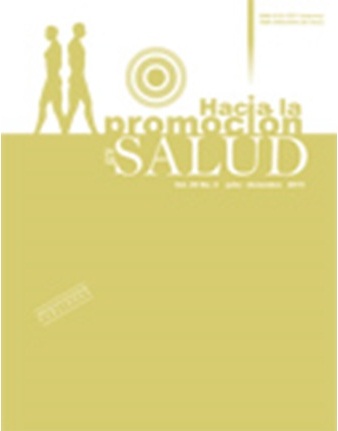Authors
Abstract
The purpose of the perinatal maternal care is the mother’s and child’s health and life quality, which can be achieved through the interaction between the mother, family and caretaker. It is within this relationship where knowledge, experiences and perceptions about care are shared,generating responsibilities to achieve this goal. However, to obtain this, it is necessary to realize that the perinatal maternal care practice differs from one place to another and from time to time, since care taking, like every human activity, is always set in a particular culture and society, that is to say, it is articulated with culture in within a historical context. This way, the perinatal maternal care is a transmission, conservation, and culture upgrade channel, from one generation to the next. Meditating on the relationship between care and culture, led to the outline of an educational proposal based on a more integrative vision of reality, using as participant education as a strategy, though which it is possible to develop people’s capacity to research, meditate, participate and care assuming the responsibility for their own development process.
References
BERGER, Peter y LUCKMANN, Thomas. La construcción social de la realidad. Talleres Gráficos Color Efe. Buenos Aires. 1995.
COLLIÉRE, Marie F. Promover la vida. Editorial McGraw-Hill/Interamericana. España 1993.
FOUCAULT, Michel. Historia de la sexualidad. La inquietud de sí. Editores Siglo Veintiuno S.A. México, XII edición. 2001.
GEERTZ, Clifford. Conocimiento local. Ediciones Paidós. Barcelona. 1994.
GILLIGAN, Carol. La moral y la teoría. Psicología del desarrollo femenino. Traducción de Juan José Utrilla. Fondo de Cultura Económica. México. 1994.
HEIDEGGER, Martín. El Ser y el Tiempo. Fondo de Cultura Económica. México. 1993.
HOYOS V., Guillermo. La ética Fenomenológica. En A propósito de Edmund Husserl y su obra. Colección Cara Cruz. Grupo editorial Norma Barcelona. 1998.
LEVINAS, Enmanuel. Humanismo del otro. Caparros Editores, Madrid. 1993.
MARÍN, Gloria. Ética de la justicia, ética del cuidado. (Sitio en Internet) Disponible en http//www.nodo50.org/donesselx/etica.htm.
MINISTERIO DE PROTECCIÓN SOCIAL. Ley 100 de 1993.
SANTARELLI, Carlo. Individuos, familias y comunidades para mejorar la salud de la madre y el recién nacido. Iniciativa “Reducir los riesgos del embarazo”. OMS. Ginebra. 2002.
SCHUTZ, Alfred. La construcción significativa del mundo social. Ediciones Piadós Ibérica S.A. Barcelona.
TORRALBA ROSELLO, Francesc. Lo ineludiblemente humano. Hacia una fundamentacion de la ética del cuidar. Revista Labor Hospitalaria, Barcelona, septiembre 1999.
GIRALDO E., Hernán Alberto y GONZÁLEZ, Dolly Magnolia. Creencias, costumbres y prácticas acerca de los cuidados de la madre durante la gestación, parto y posparto, cuidados del niño y planificación familiar en la comunidad del Barrio Santa Ana del municipio de Villamaría (Caldas). Tesis para optar el título de Maestría en Desarrollo Social y Educativo. CINDE–Universidad Pedagógica Nacional.


 PDF (Español)
PDF (Español)
 FLIP
FLIP























